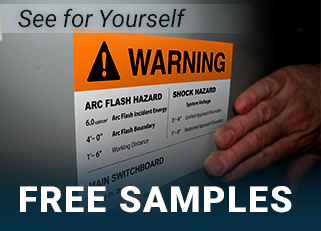Stress Management and Healthier Work Habits
03
February,
2023
5 MINUTE READ

These days, workers have multiple job demands and limited time to do it all. Throw in home-life balance, outside issues, and a global pandemic ? Got stress? Who doesn't, right? While there is no one-way formula for stress management, it only takes a couple of minutes to work on it, according to Pete Alexander, a professor and author on stress management. He talks about stress, managing it, and more for #USAMfgHour on Twitter.
Control Thyself
Stress is a word that is so common in our culture, but it is a serious topic. Most people probably do not consider stress as something to gain under control, or even easily. Why should we care about stress?
"Stress can affect everything," said Striven Software. "From your immediate work environment to your coworkers. It can even carry over and affect your personal life and relationships. If left unresolved, it can severely impact your health."
"Because it really affects one's quality of life and relationships," said Home Building Solutions.
"Because it is a killer," said Chenango Valley Technologies. "It can wreck your entire life. It needs to be monitored and controlled or else there could be major problems."
"My first thought is because it kills people! But further thinking leads me to how it can ruin relationships, it can get you fired, make hurt feelings, just so unhealthy if it gets out of hand," said Sue Nordman of Obsidian Manufacturing.
"Stress can inhibit our ability to function when it becomes overwhelming, whether it be professionally or in our personal lives," said Obsidian.
"I've had a lot of job experiences that turned sour because of mismanaged and redirected stress," said Striven. "It can really make or break an employee's decision whether or not they want to continue working there."
"I agree! I've had similar experiences," said Nordman. "My first big job, I left because of mismanaged stress. A real lesson-learner there for sure!"
"Sometimes, it is the environment that is toxic and not our management of the stress," said Dar-Tech. "We can be failures in one team or place and superstars in another."
The World Health Organization calls stress the number one health epidemic of the 21st century, Alexander said. In addition to the negative effects it has on each of us, stress is a global phenomenon. COVID-19 is getting the attention right now, but what does COVID cause? Stress. That's why the WHO calls it #1, he said.
Whether at home or work, did you know there is good stress and bad stress?
"When I was typing answer 1, I actually thought of this. Some stress can be good. Most of it is bad though. I'd love to hear more about this," said Nordman.
"I've heard that but might have a hard time distinguishing the two. Educate me," said Drive Source International/Dynamatic.
"Yes, we do," said CVT. "Good stress keeps you on edge and top of your game. It can help to drive you further and do more than normal. Bad is worry and overwhelming yourself, not taking breaks to clear the mind."
Alexander went on to say that good stress (eustress) helps us get things done when we are doing what we are passionate about. "Bad stress is guilt about something in the past (rumination) or anxiety about something in the future. We should try to minimize bad stress. minimize bad stress and don't worry about the good stress," he said. The importance is to know your stress limitations and actively pay attention to the types of stresses and your response.
"Sounds like good stress is more like excitement!" said DCSC Inc.
"I imagine they have different effects on the body then," said DSI.
"Bad stress drops unnecessary cortisol and adrenaline into your body when you don't need it," said Alexander.
Pay Attention to the Signs
Your mind and body will give you early warning signs. What are early signs that you are manifesting stress?
There were some in the chat who expressed their personal, medical, and emotional states of beings as having an amplification of stress manifestation, which are oftentimes beyond a person's control. Medical assistance can be helpful. If you think you need help with stress management, please contact your health care provider.
"Teeth clenching, muscle tightness or aches, headache, restlessness," said DuraTech.
"For me, headaches are a common thing when I get stressed," said Obsidian. "It's a good way for me to realize that I need to take a second and do some stress relief activities."
"Personally, it's lack of sleep and a migraine but there's so much more going on, I'm sure," said Nordman.
"Back tightens, you feel tired all of the time, sleeping becomes hard to do. On and on it goes. Been through this many times," said CVT.
"Short temper and trouble sleeping for sure! My days off used to be my recovery days where I would be so tired that I wouldn't be able to do anything productive for myself," said Striven.
"If I carry too much stress, I get back spasms and I'm not very patient. I don't even realize it because I carry it internally," said Nick Rivers of Obsidian.
"Signs of stress for me: I forget things, I may not have an appetite, I am shorter in my answers to people, I use my reading glasses more often, sleep is disrupted," said DSI.
"Usually for me: bad attitude, trouble sleeping, and back pain," said Dar-Tech.
Alexander then said that early symptoms of stress include:
- A mental lack of focus
- mood swings
- panic attacks
- alcohol/drug addiction
Stress also causes physical symptoms such as back/shoulder stiffness, sleep issues, digestive disorders, headaches, and/or weight fluctuations, Alexander said.
Overload is serious and can have dangerous effects. What do you do to reduce your mental stress and manage it?
"I've purposely made my life extremely simple, and I try to find joy and laughter with the small things in life. And I have cats," said Home Building Solutions.
"I go for walks daily, which really help," said Cleveland Deburring. "And I've taken upon a personal daily quest to not concern myself with anything past my usual bedtime."
Paul Kiesche of Aviate Creative said he has been working more on (or trying to) reduce stress by:
- Exercising - Running
- Meditation
- Getting the right amount of sleep
- Eating less sugar and improving nutrition
- Less caffeine
- Letting go of things I can't control
- Addressing things I can control
"Shut down, turn off the phone/computer, exercise/take a walk, have a stress ball," said CVT. "Have time limits on projects, take breaks (extended) from social, talk to people, go fishing, eat healthily, get sleep."
"We all have hobbies and things we enjoy that we can just pick up and tune out other stuff," said Striven. "Recently, my partner and I have played board games before bed, on our lunch breaks. Just unplugging for a bit, spending time together is so nice for my brain."
"Mental stress reducer = games on my phone! Mindless Games! Then a nap! I might watch a couple of funny pet videos - I love those.. and then there's that ?Have a drink!'" said Rivers.
"I used to ride my horse but he passed recently. THAT caused serious stress. Grief," said Dar-Tech. "I also meditate regularly, go to meditation retreats, write, cook, read, take bubble baths, and get enough sleep for the first time in my life. I talk to friends and family."

"Deep breaths are number 1 with me," said Nordman. "I never realized I was doing it until one of my kids called me out on it. Changing the scenery, sometimes talking it out, meditation, a glass of water, healthy snack. When anxiety is bad, the best thing for me is a reality check."
"Yoga. Go for a walk. Fresh air can really shift things. And regular massage therapy," said marketing expert Gail Robertson.
"Family - Faith - Fun & Hit the gym," said Curt Anderson of B2Btail.
My favorite mental stress tips include gratitude, eliciting your personal values, visualization, detoxing from technology, and forgiveness of yourself and others, said Alexander.
What do you do to reduce your physical stress?
"I have started walking after work as soon as I get home," said CVT. "It is cold, but it's quiet, and gives me a break before my kids overwhelm me."
"Same as I do for mental/emotional but I also do dance class," said Dar-Tech.
My favorite physical stress tips include microbreaks, take a walk in nature, traction stretches, 30-second total body shake and ask the pendulum a yes/no question, said Alexander. He also shared tips from his best-selling book as well as tips on stress relief habits to better protect health and improve the ability to handle challenges.
Improving stress management will help improve individual work performance and could also be an example for others to follow.
About #USAMfgHour
Anyone who champions U.S. manufacturing can join in on a new conversation each week on Twitter using the hashtag #USAMfgHour. The chat starts at 11 a.m. Pacific Standard Time/2 p.m. Eastern. Share positive blog posts, helpful articles, news, important information, accomplishments, events, and more with other manufacturers and supporters from throughout the country.
Are you interested in hosting a #USAMfgHour chat? Contact organizers @CVTPlastics, @DCSCinc, and @SocialSMktg.
RELATED RESOURCES

How Manufacturers can Reduce Turnover by 50%
Manufacturing has the second-highest rate of turnover in the U.S. Management consultant and leadership coach ...
Read
How to Correctly Use Feedback to Strengthen Teams
It might seem daunting to have to give workers feedback. However, when doing it with finesse, it can build up ...
Read
Manufacturers Highlight Best of 2020
The final chat of 2020 reflects on what manufacturers and supporters learned and ending the year on a lighter ...
Read.png)


